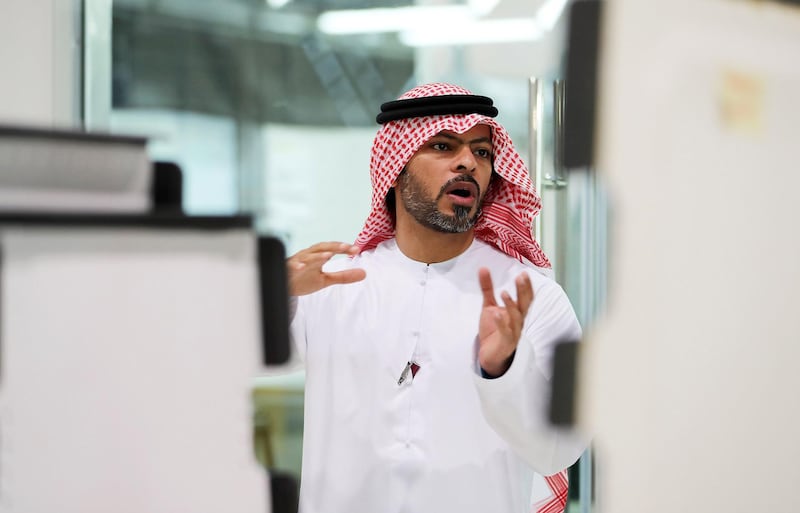Strata Manufacturing, a manufacturer of aircraft mechanical structures wholly owned by Abu Dhabi's Mubadala Investment Company, is aiming to manufacture engine parts by the end of 2020 in a push to expand.
"As part of Strata's diversification drive, we are looking forward to start manufacturing airplane engine parts and currently we are in discussion with a number of industry players," Ismail Abdulla, chief executive of Strata Manufacturing told The National. "We are evaluating the market and by next year we will be doing something big in terms of engines."
Strata, which has $7.5 billion (Dh27.8bn) worth of orders from Boeing and Airbus until 2030, will maintain revenues of Dh500 million this year, unchanged from 2017, as the industry faces market headwinds. Boeing, one of Strata’s main customers, is caught in the crosshairs of a trade war between the US and China in which the world's second largest economy is threatening a 25 per cent tariff on the US-made aircraft.
The Middle East is one of the world’s fastest-growing aviation markets and, in the UAE alone, the sector is expected to contribute Dh194.5bn to the country’s economy by 2020 and provide approximately 750,000 jobs, according to global research firm Oxford Economics.
_______________
Read more:
[ Merger of AI and big data to steer businesses towards goals, say experts ]
[ Exclusive: Inside the UAE factory where parts for the world's superjumbos are finely crafted ]
_______________
Strata has no immediate plans to venture into the segment of electric airplanes in the near future but it is open for discussion if any big player approaches it.
“From our perspective, we are actually concentrating on what we have today and focusing on enhancing our current product portfolio,” Mr Abdulla said.
“However, if we are invited for a dialogue by some big player then we are open for that. Yes, there could be some flights with electric engines in the future but the number will be limited as a major challenge that everybody is facing today is regarding the storage capacity of batteries.”
The Strata manufacturing plant sprawls across 31,000 square metres in the deserts of Al Ain. From just one production line in 2010 there are now 11, with more than 700 workers delivering parts for the world’s most advanced passenger jets.
"We are reacting very fast to the growing market demands," Mr Abdulla said, emphasising its rapid adaption of assembly line technology. Currently all fabrication - cutting, rolling, shaping, heating or hammering metal products to assemble different parts of an aircraft – at Strata is done by hand.
But such work will soon be done by two automated tape laying machines recently purchased by the company.
As part of its joint venture with Belgian composite materials firm Solvay, Strata will be making carbon fibres for the first time, a durable material used in aircraft parts for the Boeing 777X, which Emirates is due to be the first customer of in 2020.
The materials will be produced in Al Ain, said Mr Abdulla.
Strata is seeking opportunities in Saudi Arabia and the Far East to expand its supplier base. It is in discussion with the kingdom’s aero-structures maker Taqnia to outsource some of its manufacturing. In recent months, it has also reached new agreements with Boeing, Honeywell, IBM and Siemens. With these agreements, Strata will be able to increase its product offerings.
Mr Abdulla considers artificial intelligence, blockchain and 3D printing as top three technologies that could be the real game-changers in aviation industry in the coming years.
“The way aerospace manufacturers produce products today is not sustainable in the long run," he said. "This could be addressed by the right use of technology. At Strata, we differentiate ourselves from our competitors by investing big on technology.”
Strata, which shipped close to 10,000 parts globally in 2017, has created a dedicated digitisation division to execute a number of AI- and big data-related projects.







